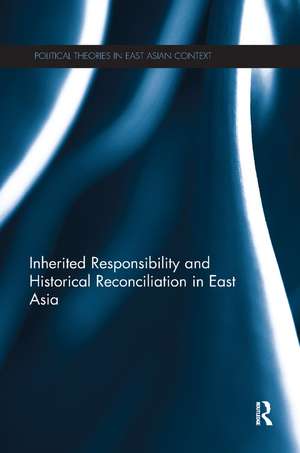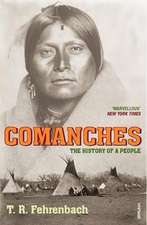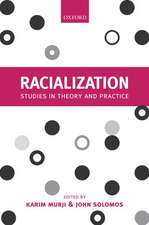Inherited Responsibility and Historical Reconciliation in East Asia: Political Theories in East Asian Context
Editat de Jun-Hyeok Kwak, Melissa Noblesen Limba Engleză Paperback – 28 mar 2019
This book examines the challenges of historical reconciliation in East Asia, and, in doing so, calls for a reimagining of how we understand both historical identity and responsibility. It suggests that by adopting a ‘forward-looking’ approach that eschews obsession with the past, in favour of a reflective and deliberative engagement with history, real progress can be made towards peaceful coexistence in East Asia. With chapters that focus on select experiences from East Asia, while simultaneously situating them within a wider comparative perspective, the contributors to this volume focus on the close relationship between reconciliation and ‘inherited responsibility’ and reveal the contested nature of both concepts. Finally, this volume suggests that historical reconciliation is essential for strengthening mutual trust between the states and people of East Asia, and suggests ways in which such divisive legacies of conflict can be overcome.
Providing both an overview of the theoretical arguments surrounding reconciliation and inherited responsibility, alongside examples of these concepts from across East Asia, this book will be valuable to students and scholars interested in Asian politics, Asian history and international relations more broadly.
| Toate formatele și edițiile | Preț | Express |
|---|---|---|
| Paperback (1) | 385.74 lei 6-8 săpt. | |
| Taylor & Francis – 28 mar 2019 | 385.74 lei 6-8 săpt. | |
| Hardback (1) | 1054.89 lei 6-8 săpt. | |
| Taylor & Francis – 12 feb 2013 | 1054.89 lei 6-8 săpt. |
Preț: 385.74 lei
Nou
Puncte Express: 579
Preț estimativ în valută:
73.81€ • 77.06$ • 61.09£
73.81€ • 77.06$ • 61.09£
Carte tipărită la comandă
Livrare economică 04-18 aprilie
Preluare comenzi: 021 569.72.76
Specificații
ISBN-13: 9780367280666
ISBN-10: 0367280663
Pagini: 200
Dimensiuni: 156 x 234 x 11 mm
Greutate: 0.37 kg
Ediția:1
Editura: Taylor & Francis
Colecția Routledge
Seria Political Theories in East Asian Context
Locul publicării:Oxford, United Kingdom
ISBN-10: 0367280663
Pagini: 200
Dimensiuni: 156 x 234 x 11 mm
Greutate: 0.37 kg
Ediția:1
Editura: Taylor & Francis
Colecția Routledge
Seria Political Theories in East Asian Context
Locul publicării:Oxford, United Kingdom
Public țintă
Postgraduate and UndergraduateCuprins
Part I: Introduction 1. ‘Inherited’ Responsibility and Historical Reconciliation in East Asian Context Part II: Theoretical Overview 2. Owning the Misdeeds of Japan’s Wartime Regime 3. Historic injustice and the inheritance of rights and duties in East Asia 4. Inherited Responsibility and the Challenge of Political Reconciliation Part III: Historical Reconciliation in East Asia 5. Historical Reconciliation in Southeast Asia: Notes from Singapore 6. Remembering and Forgetting the War: Elite Mythmaking, Mass Reaction, and Sino-Japanese Relations 7. Appropriating Defeat: Japan, America, and Eto Jun’s Historical Reconciliations 8. "Comfort Women" and Japan’s National Responsibility: A Case Study in Reconciling Feminism and Nationalism Historical Reconciliation in China 9. Captives of the Past: The Questions of Responsibility and Reconciliation in North Korea’s Narratives of the Korean War
Notă biografică
Jun-Hyeok Kwak is Professor in the Department of Philosophy at Sun Yat-sen University, China.
Melissa Nobles is the Arthur and Ruth Sloan Professor of Political Science at MIT, USA.
Melissa Nobles is the Arthur and Ruth Sloan Professor of Political Science at MIT, USA.
Descriere
This book examines the challenges of historical reconciliation in East Asia, and, in doing so, calls for a reimagining of how we understand both historical identity and responsibility.



























